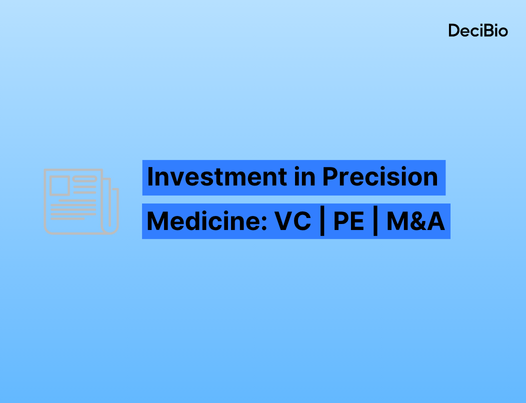ILMN and LIFE announce the introduction of 2 platforms that may sequence a human genome for $1,000
From Illumina’s website:
Illumina introduced the HiSeq® 2500, a next-generation sequencing system that will enable researchers and clinicians to sequence an entire genome in approximately 24 hours, “Genome in a Day”. The HiSeq 2500 leverages the continued technology advancements from both the HiSeq 2000 and MiSeq™ platforms.“The ability to sequence an entire genome in a day with the same high quality data as the HiSeq 2000 will enable new opportunities for researchers to develop medically relevant whole-genome applications,” said Jay Flatley, President and Chief Executive Officer at Illumina. “With the HiSeq 2500, Illumina is taking another significant step forward in enabling our vision of revolutionizing human healthcare.”The HiSeq 2500 offers:
- Unprecedented Speed and Flexibility – two modes allow researchers to generate 120 gigabases (Gb) of data in 27 hours, or 600 Gb in a standard HiSeq run.
- High Quality Data- system uses the proven SBS chemistry that has made both the HiSeq 2000 and the MiSeq systems the most accurate next-generation sequencers.
- Expanding Applications – enables researchers to sequence a human genome or 20 exomes in a day, or 30 RNA sequencing samples in as little as five hours.
- Industry Leading Simplicity and Ease-of-Use – integrated cluster generation process enables a simplified workflow similar the MiSeq platform.
- Upgradable from HiSeq 2000 – through a simple, field-based upgrade priced at $50,000.
The Company also announced the following performance enhancements to the MiSeq personal sequencer:
- Threefold Increase in Throughput – capable of generating up to 7 Gb per run, expanding the number of applications and increasing sample throughput.
- Longer and More Reads – a new 500-cycle reagent kit supports 2 x 250 bp runs, generating over 15 million clusters per run and enabling more accurate small-genome assembly and small RNA sequencing projects.
- Faster Run Times – Faster cycle times enable rapid turnaround applications, allowing researchers to perform microbial identification sequencing in as little as 2 ½ hours.
“The HiSeq 2500 and the improvements to our MiSeq platform continue to demonstrate the headroom our SBS sequencing chemistry brings to the evolution of next-generation sequencing,” said Flatley. “These improvements will enable expansion into new markets, moving next-gen sequencing applications closer to the clinic, and broadening access to labs of all types around the world.”The Company expects to begin full commercial shipment of the HiSeq 2500 in the second half of 2012. Upgrades will be available to all HiSeq 2000 customers. MiSeq performance improvements will be available to all new and existing customers starting mid-2012.From Life Technologies’s website:Life Technologies Corporation (NASDAQ: LIFE) today announced it is taking orders for the new benchtop Ion Proton™ Sequencer that is designed to sequence the entire human genome in a day for $1,000.The Ion Proton™ Sequencer, priced at $149,000, is based on the next generation of semiconductor sequencing technology that has made its predecessor, the Ion Personal Genome Machine™ (PGM™), the fastest-selling sequencer in the world.Up to now, it has taken weeks or months to sequence a human genome at a cost of $5,000 to $10,000 using optical-based sequencing technologies. The slow pace and the high instrument cost of $500,000 to $750,000 have limited human genome sequencing to relatively few research labs.Baylor College of Medicine, Yale School of Medicine, and The Broad Institute, have each signed up for multiple Ion Proton™ Sequencers and will be the first customers to adopt this transformative technology.Breaking the Cost and Time Barrier for Genomic Sequencing"A genome sequence for $1,000 was a pipe-dream, just a few years ago," said Dr. Richard Gibbs, Director of the Human Genome Sequencing Center, Baylor College of Medicine. "A $1,000 genome in less than one day was not even on the radar, but will transform the clinical applications of sequencing.""Cost, speed and accuracy are key elements in the use of DNA sequencing for both disease-gene discovery and clinical utility," said Dr. Richard Lifton, Chair of the Department of Genetics, Yale School of Medicine. "The technological advances in the new Ion Proton™ instrument promise to be game-changing for both research and clinical applications.""We are excited about the paradigm-shifting potential of the new Proton Sequencer, which projects to sequence a human genome in just a few hours with only one run on a single machine," said Dr. Chad Nusbaum, co-director of the Broad Institute's Genome Sequencing and Analysis Program. "The platform's speed and power promise to enable both large-scale research and new clinical applications."The Power of Benchtop Sequencing for All ApplicationsBetween the benchtop Ion PGM™ Sequencer and the benchtop Ion Proton™ Sequencer, the Ion Torrent technology can cover any application. The Ion PGM™ Sequencer is ideal for sequencing genes, small genomes, panels of genes, or performing gene expression profiling, for as little as $99 a chip. The Ion PGM™ Sequencer's speed, simplicity and scalability also make it an ideal platform to extend into diagnostics. Life Technologies will seek FDA clearance for the Ion PGM™ platform in 2012.The Ion Proton™ Sequencer is ideal for sequencing both exomes — regions in the DNA that code for protein — and human genomes. The Ion Proton™ I Chip, ideal for sequencing exomes, will be available mid-2012. The Ion Proton™ II Chip, ideal for sequencing whole human genomes, will be available about six months later. In addition, the Ion Proton™ OneTouch™ system automates template prep and a stand-alone Ion Proton™ Torrent Server performs the primary and secondary data analysis."Just six months after our first semiconductor sequencing chip was released, people used it to solve the German E. coli outbreak, sequencing the toxic strain in just a couple of hours," said Dr. Jonathan M. Rothberg, the Founder and CEO of the Ion Torrent division. "Now, six months later we're developing a chip that's 1,000 times more powerful than that to sequence an entire human genome in about the same amount of time. That's the power that semiconductors bring to sequencing."Empowering Every Lab; Freedom from Informatics BottleneckThe Ion Proton™ Sequencer and Ion Reporter analysis software are designed to analyze a single genome in one day on a stand-alone server — eliminating the informatics bottleneck and high-capital, IT investment associated with optical-based sequencers. The optical-based sequencers require costly IT infrastructure to analyze the large volume of data generated by running batches of six or more genomes at once. The approach drastically slows analysis, which can take weeks to complete and creates the bottleneck in the process.Simpler Data InterpretationAnother major challenge in whole genome sequencing is the interpretation of the genetic data for use in diagnostic and treatment decisions. To solve this problem, Ion Torrent has sponsored a collaborative effort with Carnegie Mellon University to develop open-source software that will help clinicians interpret and understand genetic data for meaningful application. Ion Torrent is also collaborating with Yale Medical School to identify best practices for diagnostic development and gene discovery as a model for genome sequencing in a clinical setting."The huge variation in human genome sequence between individuals has always been an obstacle to understanding how to use sequence information to improve human health," said Dr. Robert F. Murphy, director of the Lane Center for Computational Biology in Carnegie Mellon's School of Computer Science, who will lead the multidisciplinary CMU team. "We believe new machine learning approaches will enable interpretation of personal genome sequences to help doctors diagnose and guide treatment in the near future."All products referenced are for Research Use Only, and not intended for any animal or human therapeutic or diagnostic use.

Authors: Stephane Budel, Partner at DeciBio, LLCConnect with Stephane Budel on Google+https://plus.google.com/+StephaneBudel



.png)



